
"Geb Egyptian Gods, Goddesses, and Deities" Metal Print for Sale by Redbubble
The Egyptian god of the earth is affiliated with many legends involving ancient society. In the Heliopolis creation myth, Geb is created by his parents and then falls in love with his sister, Nut, goddess of the sky. Shu, Geb's father and god of the air, is angered by this and physically separates the two by placing himself between them.
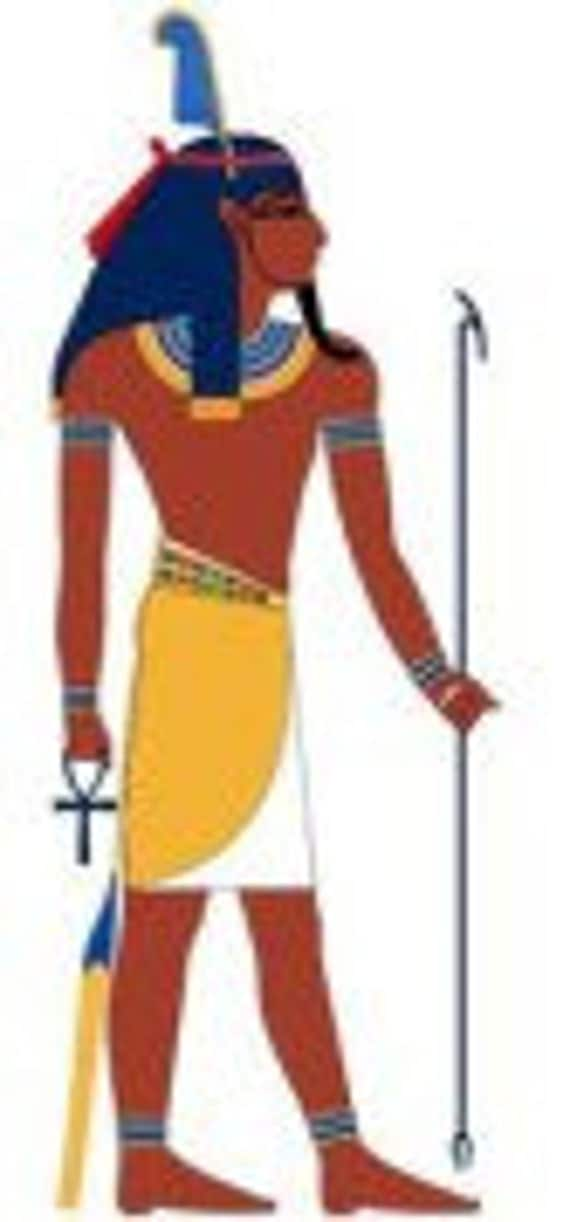
Geb the Egyptian God of Earth Attunement by MicorscopeDesigns
The Egyptian god Geb meaning of his name. The name of the Egyptian god Geb is a contradiction in itself. While his name means "the weak one" or the "lame one", the truth is, he is considered one of the more powerful gods of the ancient Egyptian pantheon. In society, the Egyptian god Geb was invoked in many different situations.
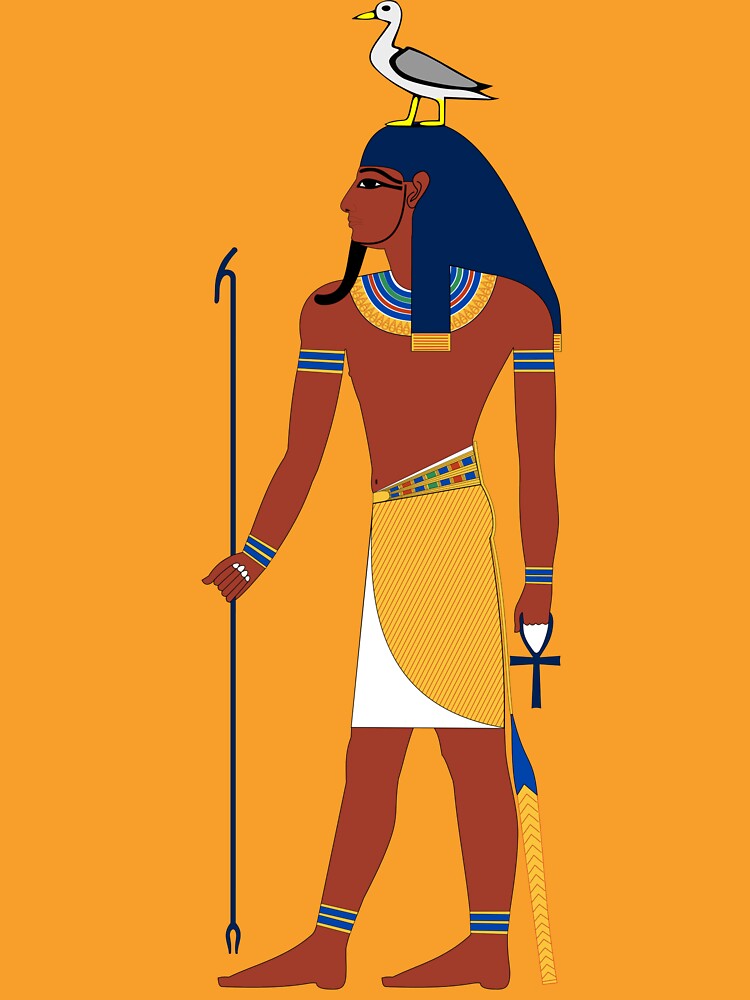
"Geb Egyptian Gods, Goddesses, and Deities" Tshirt by Redbubble
Geb, in ancient Egyptian religion, the god of the earth, the physical support of the world.Geb constituted, along with Nut, his sister, the second generation in the Ennead (group of nine gods) of Heliopolis.In Egyptian art Geb, as a portrayal of the earth, was often depicted lying by the feet of Shu, the air god, with Nut, the goddess of the sky, arched above them.
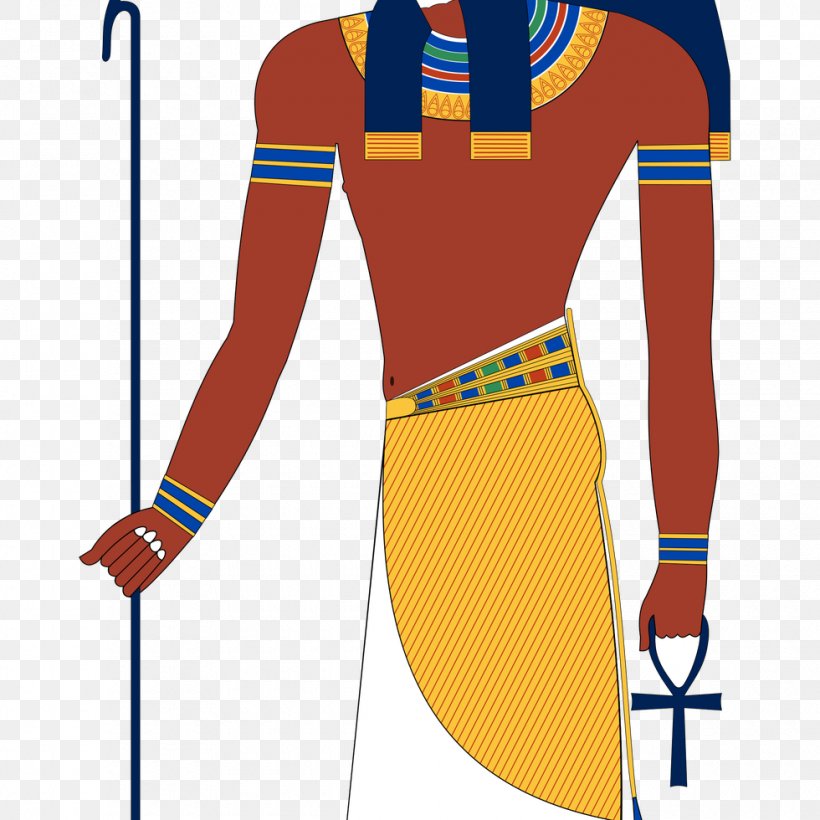
Ancient Egyptian Deities Ancient Egyptian Religion Geb Egyptian Mythology, PNG, 980x980px
Geb was the Egyptian god of the earth and a mythological member of the Ennead of Heliopolis. He could also be considered a father of snakes. He could also be considered a father of snakes. It was believed in ancient Egypt that Geb's laughter created earthquakes [2] and that he allowed crops to grow.

Geb Egyptian God of the Earth (With Facts) Give Me History
Geb was a mighty god and a remarkable figure in Ancient Egypt. He influenced the cosmos, the earth, and also the Underworld. He was the ancestor of the second line of deities, who would shape Egyptian culture for centuries. Geb transcended generations and was an influential part of royalty due to the well-established rule of his time.
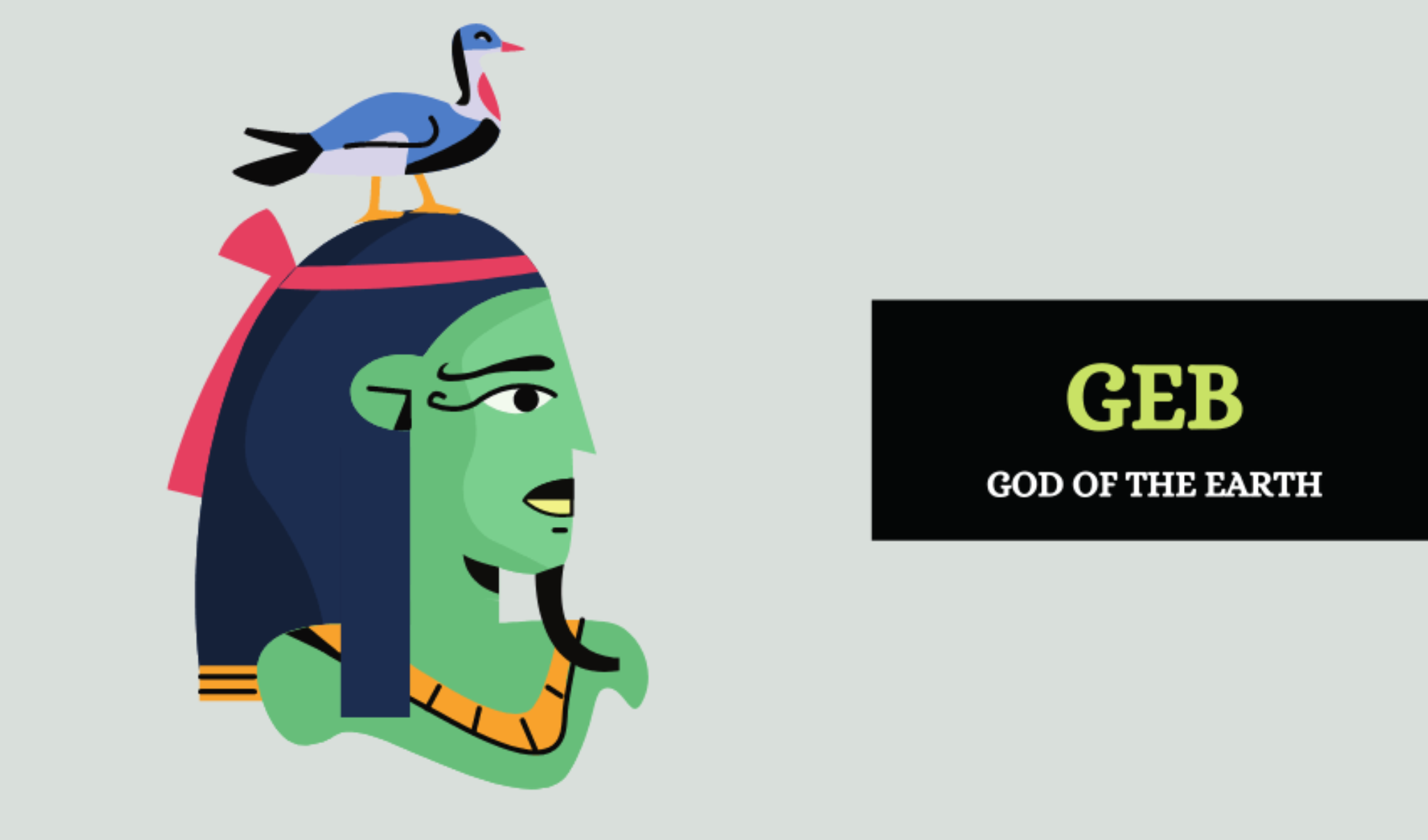
Geb Egyptian God of the Earth Symbol Sage
As the Earth god, his influence stretches far and wide within the pantheon, playing a pivotal role in shaping the cosmological views of the ancients. Embracing Geb's tales allows us a deeper dive into the rich cultural heritage of Egypt, illuminating the intertwining relationships of gods and mortals in their timeless narrative.

"Geb Egyptian Gods, Goddesses, and Deities" Stickers by Redbubble
In the ancient Egyptian religion, Geb was the god of earth and was part of the Ennead, the collective name for the nine original deities of the cosmogony of Heliopolis (the birthplace of the gods). Being the god of earth, he controlled vegetation, mountains, valleys, and the underworld. Geb was the brother and husband of Nut, the sky goddess.

Does Egyptian Myths support the Water myth
Geb is the Egyptian god of the Earth, farming and fertility, the son of Shu and Tefnut, and the brother/husband of the sky goddess Nut. He was an important deity for several reasons to the ancient.

Ancient Egyptian God Geb Facts
It's a true testament to how the gods of ancient Egypt, Geb included, were as complex and multi-faceted as the humans who worshiped them. Geb as God-King. In the annals of Egyptian mythology, one finds the curious figure of Geb often associated with rightful authority and kingship. As an embodiment of the earth, it was believed that Geb was.
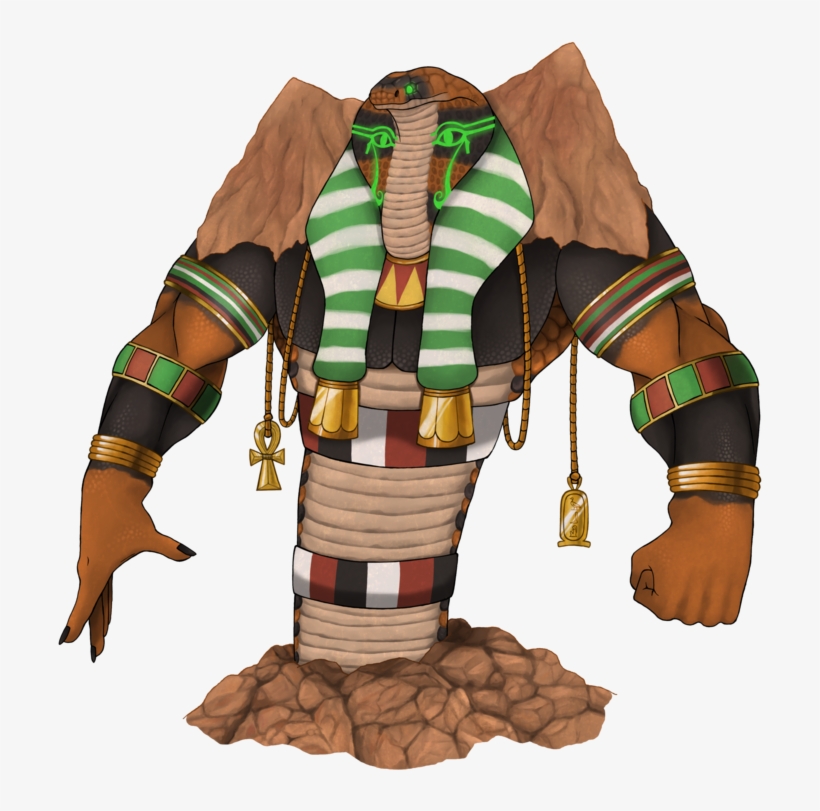
Geb Of The Earth Egyptian God Of Earth Free Transparent PNG Download PNGkey
Geb was the son of Shu, God of air and Tefnut, goddess of moisture and the grandson of Atum, the primaeval sun god. Geb along with his sister as well as wife Nut, goddess of the sky had four offspring. They were Osiris, god of underworld and afterlife; Isis, goddess of magic, fertility, motherhood and re-birth; Seth, god of chaos and Nephthys.
:max_bytes(150000):strip_icc()/depiction-of-geb-detail-of-wall-painting-tomb-of-baenentyu-bahariya-oasis-egypt-egyptian-civilization-saite-period-dynasty-xxvi-479638869-57c70d4e3df78c71b6d89dda.jpg)
15 Gods and Goddesses of Ancient Egypt
In Ancient Egypt Geb (also known as Seb, Keb, Kebb or Gebb) was a god of the earth and one of the Ennead of Heliopolis.His grandfather was Atum (the self-created creator god), his father was Shu (the god of air) and his mother was Tefnut (the goddess of moisture). Osiris, Isis, Seth and Nephthys were the children of Geb and his sister-wife Nut (the goddess of the sky).
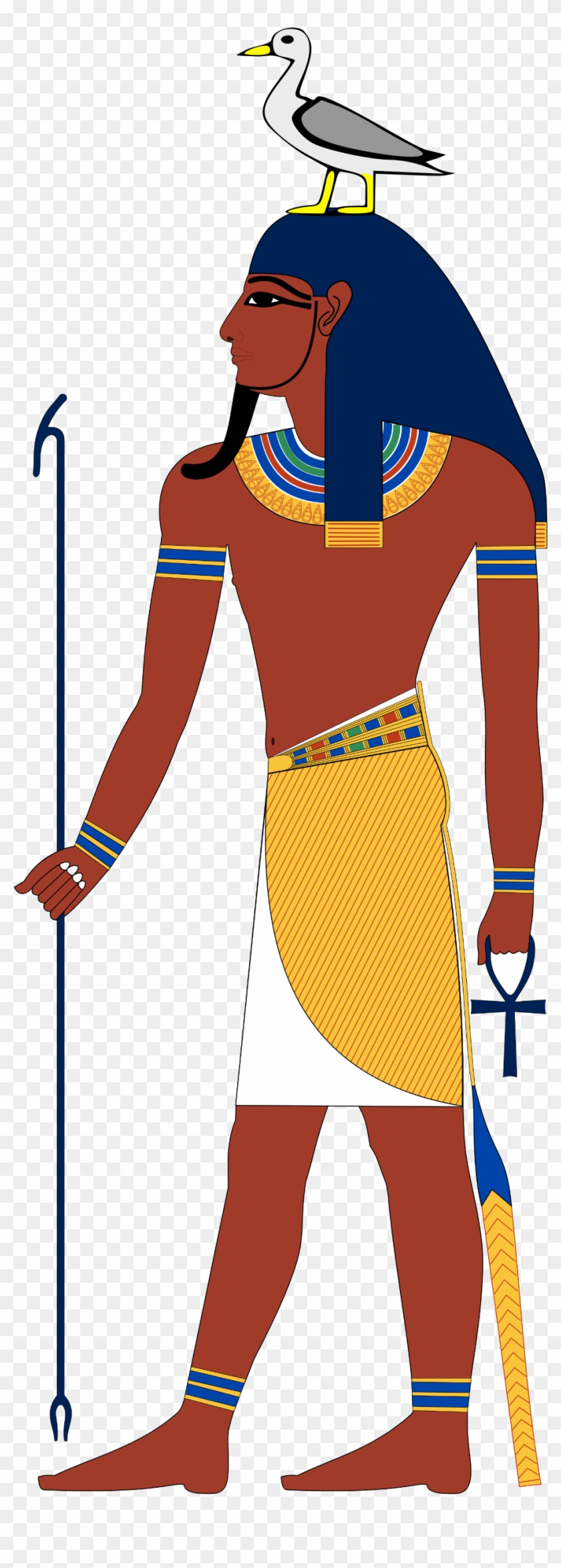
Geb The Egyptian God, HD Png Download 1200x2626(2775110) PngFind
Geb was revered as one of the earliest deities in the Egyptian pantheon. His grandfather was the creator god Atum-Ra (also known as the sun god Ra).This meant that Geb's parents were Shu and Tefnut, the deities of the wind/air and moisture respectively.. Geb had one sibling called Nut, the sky goddess, who bore five children for him.Those five deities are Osiris, Isis, Seth, Nephthys and.
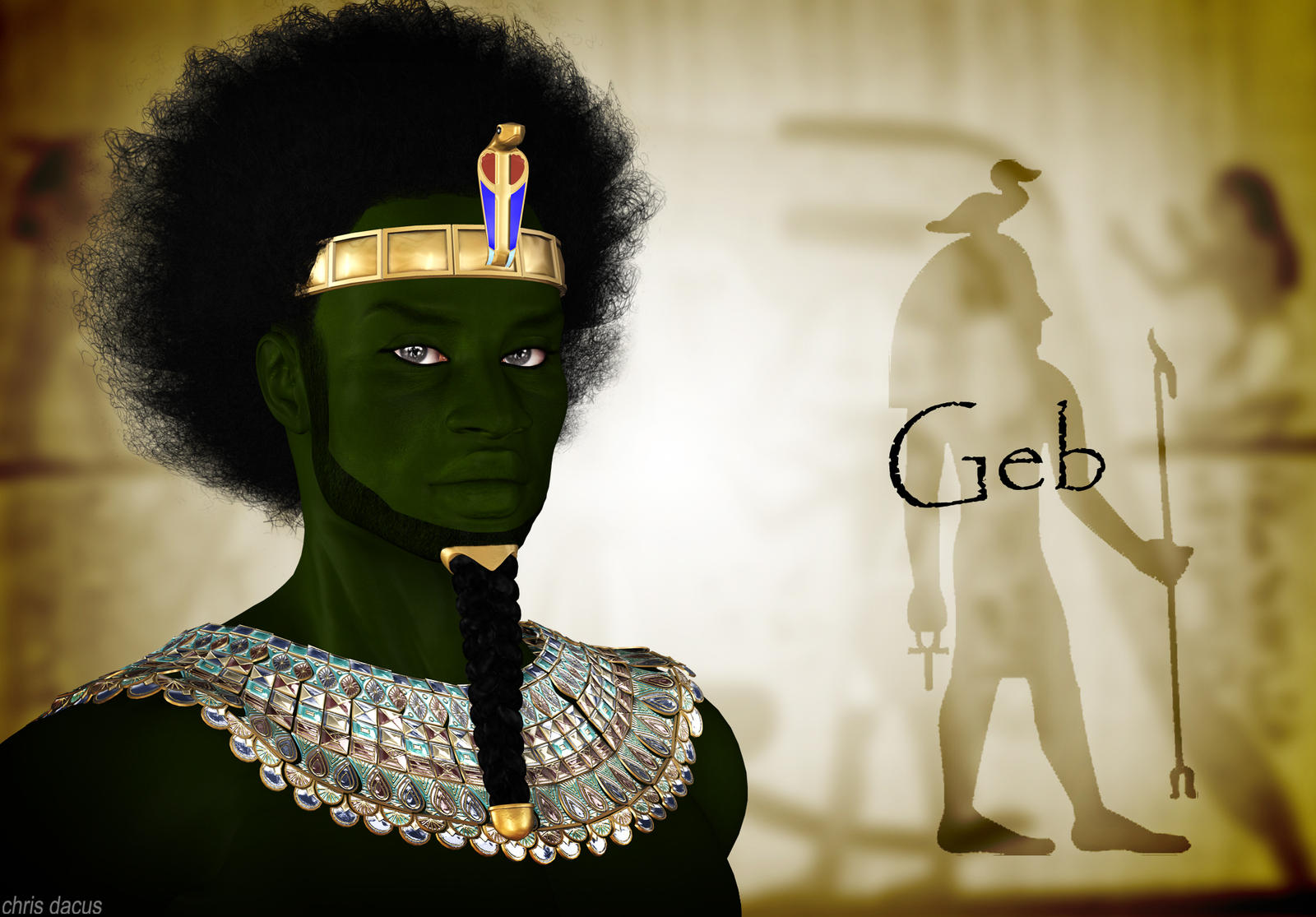
GEB by yangzeninja on DeviantArt
Geb was the ancient Egyptian god of the earth. He was also one of the second generations of the nine gods who formed the Ennead of Heliopolis. Also known as Gebb, Kebb, Keb or Seb, Geb was the third divine pharaoh. He reigned after succeeding Shu, his father and before Osiris ascended the throne.
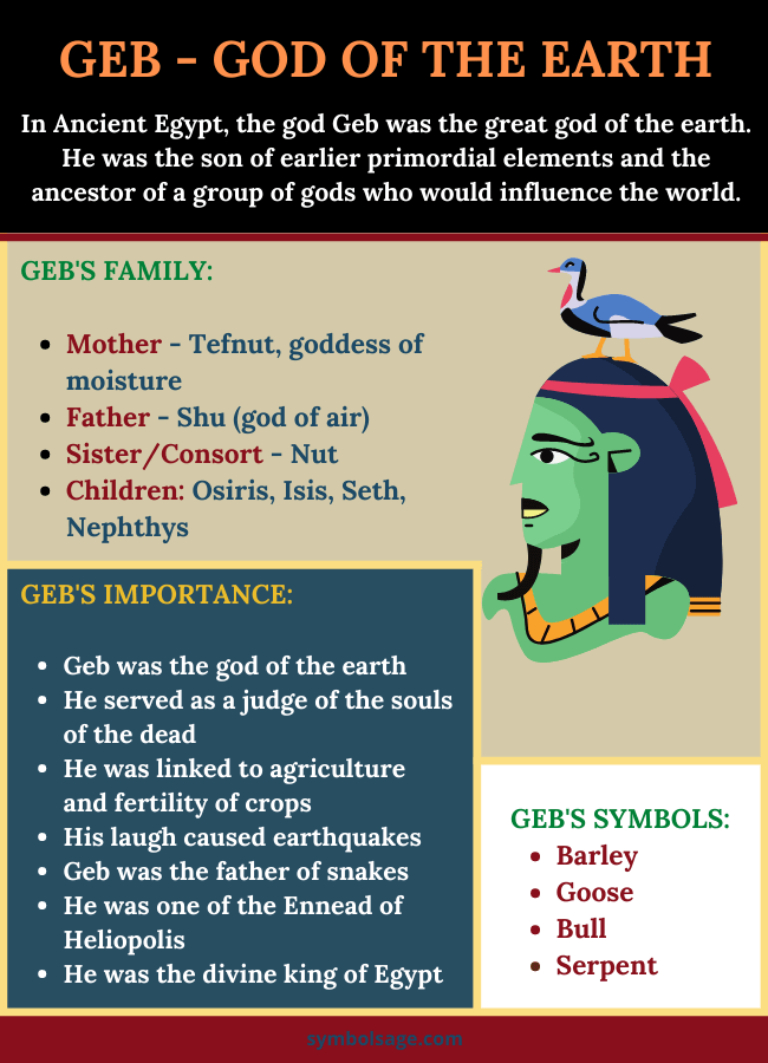
Geb Egyptian God of the Earth Symbol Sage
An important member of the Egyptian pantheon, Geb was an earth god who held sway over snakes, earthquakes, and the underworld. As the third king of Egypt (following Ra and Shu), Geb was closely tied to kingship and royal power. In this relief fragment (c. 2145-2025 BCE) Geb can be seen holding a scepter and ankh. The Walters Art Museum CC0
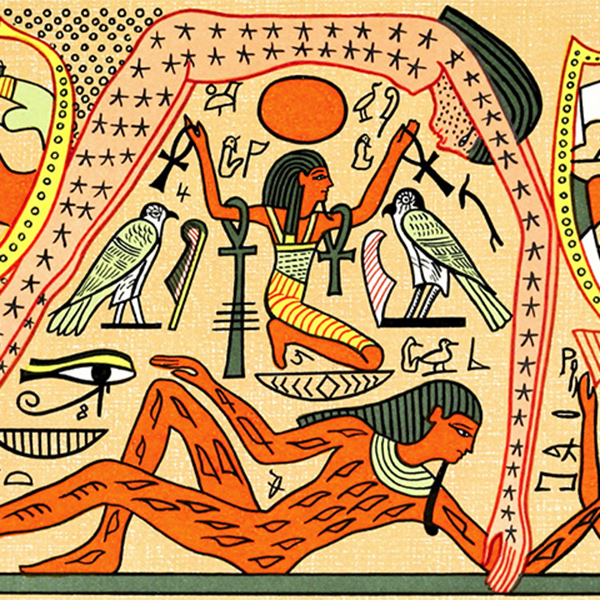
Geb Explore Deities of Ancient Egypt
Ancient Egypt was one of the few cultures that depicted the fertile earth as a male deity. In contrast to the Mother Earth archetype common around the world, Geb was the male god of the earth's virility. One of the principal gods of Heliopolis, Geb represented the land of Egypt itself.
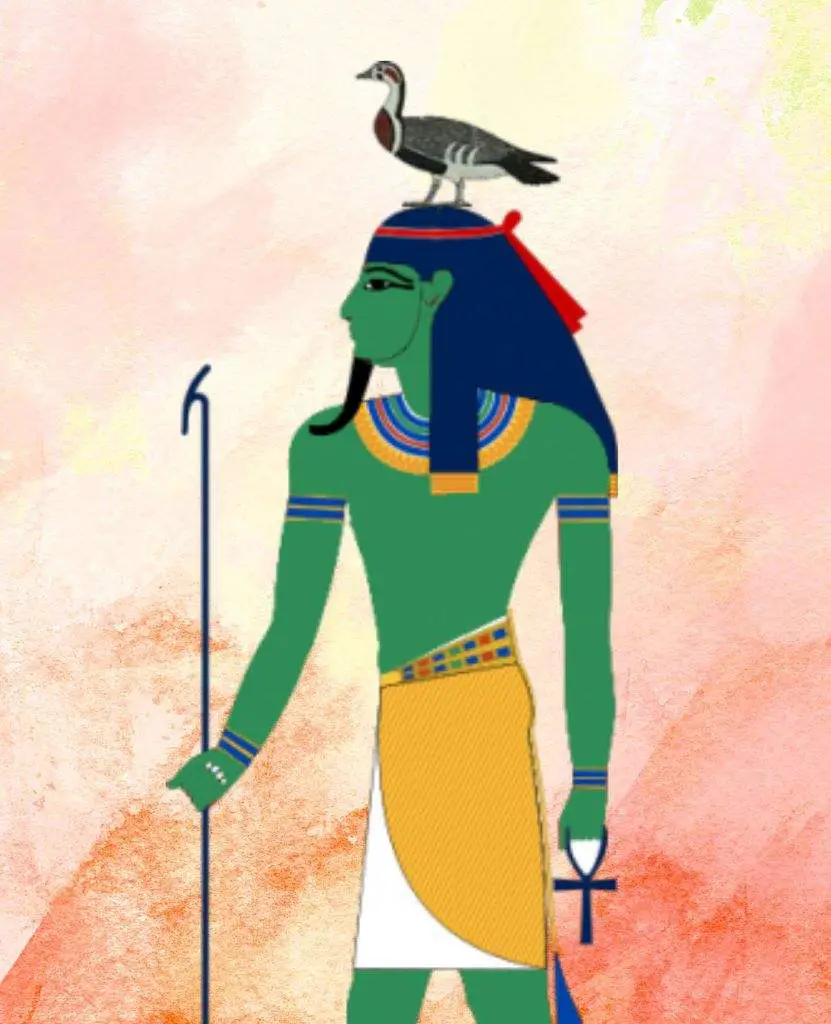
GEB » El dios de la tierra y la fertilidad para Egipto
The Egyptian God Geb. To the ancient Egyptians, Geb was the god and personification of the earth. He was unusual because he was a male earth deity, while most ancient cultures regarded the earth as female. Worship of Geb was widespread and various legends developed about him, this is why he is often depicted in Egyptian wall art.